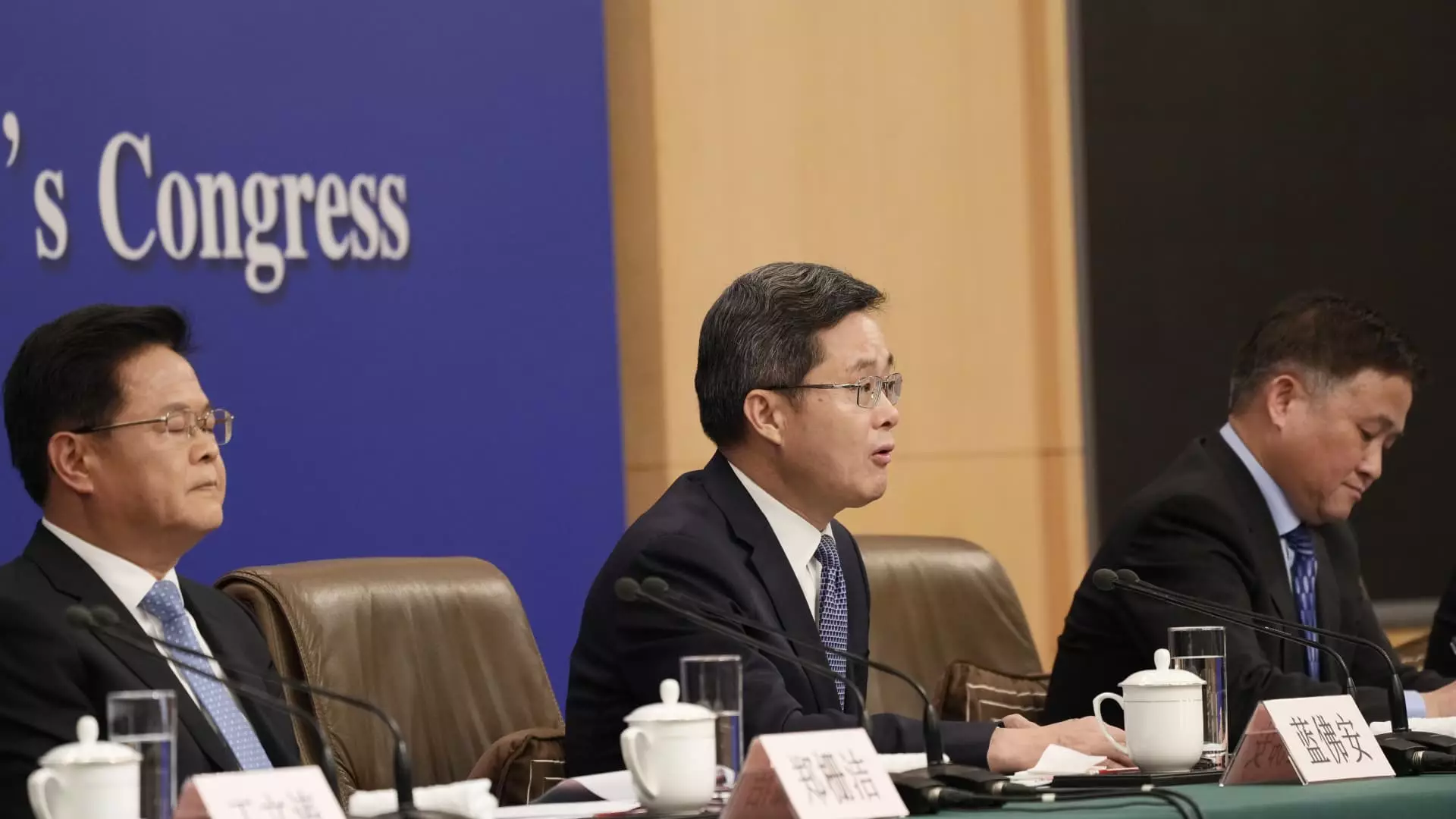As the global economy continues to face uncertainties, China stands at a crucial juncture. After a period of modest retail sales growth and a persistent slump in the real estate sector, China’s economic outlook has drawn significant scrutiny from both national and international observers. With GDP expanding by just 5% in the first half of the year, the prospects of meeting the government’s full-year target of approximately 5% are increasingly worrisome. Current economic sentiments underscore the need for decisive action from Chinese authorities to mitigate risks and invigorate growth.
Countdown to the Minister’s Announcement
The focus now shifts to an upcoming press conference led by China’s Minister of Finance, Lan Fo’an, on Saturday. Economists have ignited discussions across financial platforms regarding the necessity for additional fiscal support, particularly as Beijing has remained reticent on implementing substantial measures, despite a recent surge of high-level policy announcements. This anticipated press conference is seen as a potential turning point; analysts expect details regarding fiscal stimulus that could range anywhere from 2 trillion yuan ($283.1 billion) to over 10 trillion yuan.
In the lead-up to this significant event, the market’s expectations have heightened. The recent meeting conducted under President Xi Jinping’s guidance has signaled an intent to bolster monetary and fiscal policies, yet specific strategies and allocations remain ambiguous, placing added pressure on the upcoming disclosure.
While analysts emphasize the importance of fiscal stimulus, the nuances of its deployment are equally imperative. Ting Lu, chief economist at Nomura, highlighted in a recent report the necessity for approval from China’s parliament to execute any substantial financial initiatives. This approval process, coupled with how effectively these funds are allocated, remains a core component of instigating true economic recovery. There is considerable debate among experts about whether the released capital should prioritize local government financial stability or stimulate consumer spending—a choice that could dramatically shape economic recovery trajectories.
Current trends reveal that retail sales in China have grown only modestly. With consumer confidence shaken and the housing sector still grappling with significant challenges, the prospects for sustainable economic revival hinge heavily on proactive and targeted policy measures.
Market Reactions and Speculation
Following the weeklong holiday, mainland Chinese stocks have experienced significant volatility, shedding gains accumulated during a previous rally prompted by perceived governmental support. This fluctuation underscores a lack of sustained investor confidence amidst an unclear fiscal outlook. The previous week had seen a remarkable surge led by the CSI 300 index, which recorded its most substantial weekly gain since 2008—brought on by strong signals from Chinese authorities. However, market reality has quickly reasserted itself, reflecting an ongoing apprehension regarding the government’s economic strategy.
Recent actions from the People’s Bank of China (PBOC)—including interest rate cuts and an extension of real estate support measures—were initially well-received. Additionally, a new program allowing institutional fund borrowing for stock investments rallied hopes for recovery. On top of this, the National Development and Reform Commission (NDRC) pledging to expedite allocations for pressing investment projects is a positive step, although industry stakeholders are still waiting for comprehensive stimulus packages.
As anticipation builds for the National Bureau of Statistics to release third-quarter GDP data on October 18, the economic landscape remains tenuous. Analysts are keenly observing the reactions of markets and institutions alike, awaiting a clear direction from the Chinese government. The outcome of the Minister of Finance’s announcement may provide critical insights into both immediate measures being considered and the broader trajectory of China’s economic recovery efforts.
Markets will be vigilant, as they will need to convert any positive news into actionable investor confidence. The need for balanced and effective policies is pressing, with the hope that the forthcoming announcements will not only address immediate economic woes but also lay the groundwork for long-term viability and growth. As the day approaches, all eyes remain firmly fixed on Beijing—a city traditionally deemed the epicenter of China’s strategic economic decisions.

